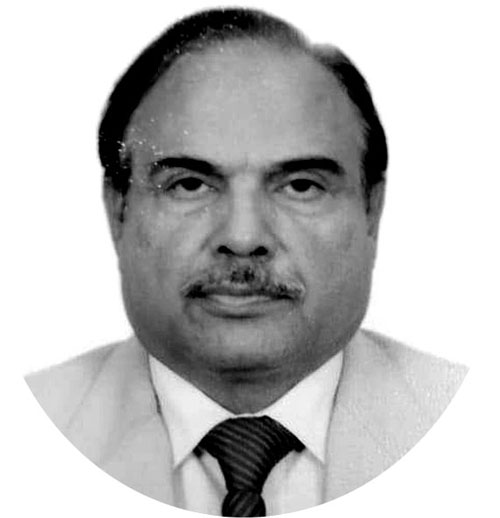Digital voting no feasible option
NATIONAL Assembly Speaker Asad Qaisar, tasked by Prime Minister Imran Khan to evolve a parliamentary consensus on electoral reforms, is unlikely to succeed due to financial, logistical and technical constraints in streamlining the voting methodology by the next general election.
At least an amount of one trillion rupees is required to replace manual voting with digital voting procedures: Electronic Voting Machines, Biometric Verification Machines or Internet voting for Overseas Pakistani in general elections.
At least Rs 60 billion would be required for the procurement of 350000 EVMS and other expenses like training of electoral staff for operating EVMs, add logistical expenses and the cost would spiral to more than Rs one trillion. I don’t think digital voting is a feasible option in Pakistan.
Uninterrupted power supply and Internet facilities are two basic prerequisites for EVMs in several parts of the country, power outages are persistent due to issues like obsolete power transmission system and line losses and several remote areas of the country have no access to Internet at all.
In such a situation how can be the introduction of EVMs ensured in 2023 general election. In my opinion this is a futile exercise.
The Election Commission of Pakistan’s pilot projects regarding EVMs have failed in the past.
After 2018 general election, ECP spent 150 million rupees for Internet voting facilities to Overseas Pakistanis in by-polls but only 400 Oversees Pakistanis cast their vote using this facility.
Government initiative to form a Parliamentary Committee on Electoral Reforms would not succeed unless ECP is involved.
It is the ECP’s constitutional obligation under Article 2018 to hold free and fair elections and without seeking its input, any initiative regarding electoral reforms is unlikely to succeed.
Chief Election commissioner should spearhead the campaign of electoral reforms instead of Speaker NA. In India all the electoral reforms are made under the supervision of C E C of that country.
he hostility between Government and Opposition has increased after Chairman Senate election. I don’t think Opposition would be willing to join hands with government on electoral reforms.
As for my information the government didn’t contact the ECP regarding formation of a Parliamentary Committee for electoral reforms.
Government electoral reforms agenda is mainly about streamlining voting methodology in general elections and open ballot in Senate elections.
The latter can be achieved simply through parliamentary legislation. But introducing EVMs, BVMs or Internet voting is not something that can be achieved in a few weeks or months.
This requires a lot of time, funds and logistical and technical expertise.
India started working on EVMs in 1980 and acquired this voting facility in 2004.
In case the use of scope of EVMs project is expanded, it may entail some challenges which are Lack of transparency, lack of trust, lack of auditability, impact of fraud, integrity and accuracy of source code and power considerations.
In India, a heated backlash against EVMs has erupted over the last two years since the BJP came to power in a significant election upset.
In just the last couple of months, the Congress Party has started a concerted campaign to get the ECI to switch to paper ballots because EVMs supposedly no longer inspire confidence in the electorate.
Former Minister and Congress leader Navjot Singh Sidhu, Insisted that BJP won’t win a single seat in Punjab if EVMs are replaced with paper. Other parties in Indian Punjab are also calling for a return to paper.
These cases are of particular interest to us because India is a role model for the developing world with regard to EVMs.
—The writer is former Federal Secretary Election Commission of Pakistan and currently Chairman National Democratic Foundation.










